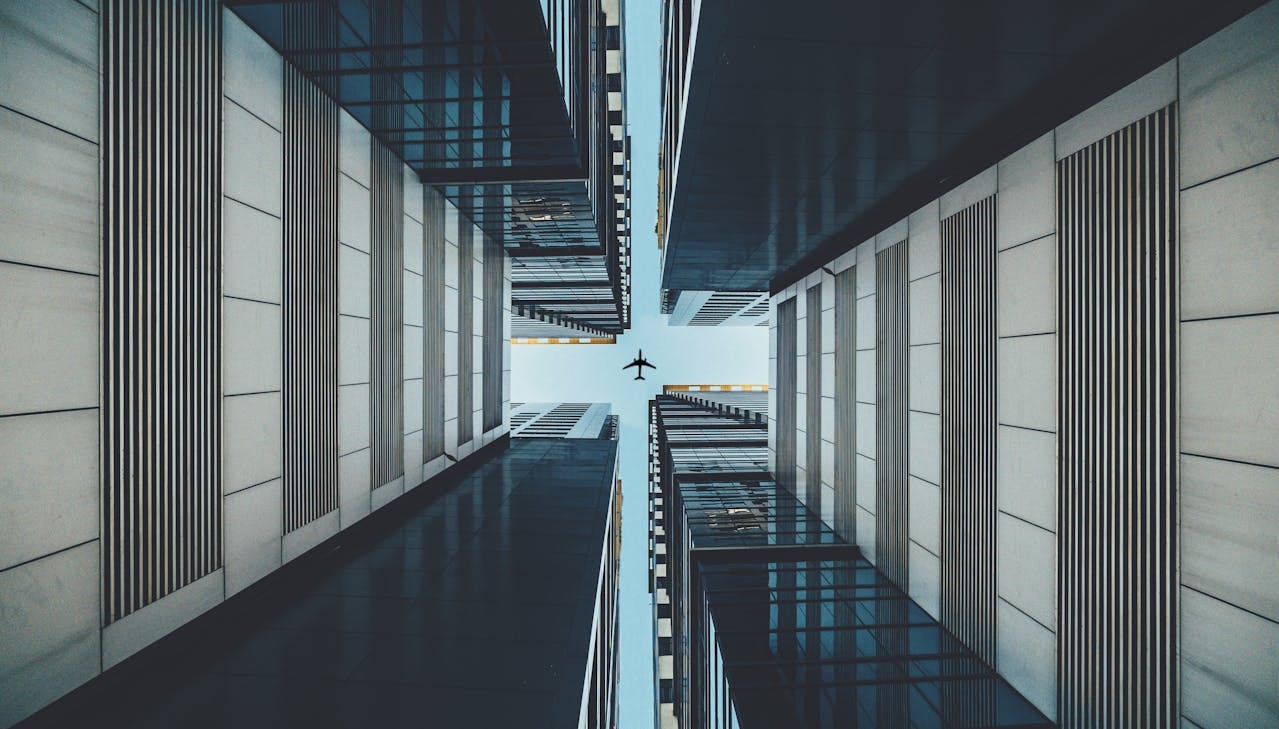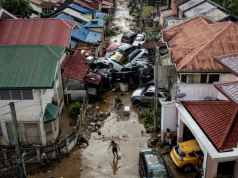You know that constant low-level anxiety that comes with big, expensive projects? The kind that asks, “What happens when the lease runs out?” For the longest time, that question hung over major foreign investors in the Philippines.

The Philippines Levels Up to Global Standards
A New Benchmark for Stability. That uncertainty is a thing of the past. Today, when major institutional investors evaluate the Philippines, they see a country offering unprecedented stability and the long-term security and certainty needed for investors to commit to multi-generational projects. The 99-year lease term now aligns with those of leading markets like Singapore and Hong Kong, positioning the Philippines to compete more effectively with its regional peers, which have long adopted similar lease structures.
The message is clear, bold, and unwavering: The Philippines is open for serious, long-term global capital, not just short-term, fleeting deals.
The Definitive Legislative Shift. This pivotal change is all thanks to the Amended Investors’ Lease Act, officially known as Republic Act (RA) 12252, an act liberalizing the lease of private land to foreign investors, signed by President Ferdinand Marcos Jr.
Think about it this way: The signed Republic Act extends the maximum lease period for private lands from 75 to 99 years. The old law (RA 7652) granted a foreign investor a maximum of 75 years, initially 50 years, with the possibility of a 25-year renewal. Maybe. That uncertainty killed big projects before they could even break ground.
RA 12252 sweeps that away, granting a secure, single maximum aggregate lease period of 99 years for the lease of private land. It provides the core policy goal: ensuring the absolute reliability of lease contracts and providing a stable, predictable environment for foreign investors to plan multi-generational projects. This is about security of tenure, pure and simple.
The Investor Advantage: Why 99 Years Unlocks Billions
De-Risking Capital-Intensive Projects
Why does 99 years feel so much better than 75? Because when you’re talking about billions of dollars building a new integrated resort, setting up a massive semiconductor plant, or funding a major infrastructure project, 75 years barely covers the financing period plus the time needed to achieve a full return.
That extra 24 years? It changes the game from a risky bet to a solid, long-term investment. Extending leases to nearly 100 years gives investors the time they need for big, expensive projects to grow and succeed. These long leases remove old land restrictions and give investors the confidence to invest heavily in important sectors, speeding up growth in infrastructure and industry. The law also supports building industrial parks by offering secure land leases and longer lease periods, making the Philippines more attractive for industrial development. Investment promotion agencies help oversee these projects, making sure they follow the rules and start on time.
Transforming Assets into Bankable Security
This is honestly the biggest financial insight of the new law. Before, a long-term lease was just a right to use. Now? It’s a bankable asset.
The law explicitly states that the leasehold right you acquire under the long-term contract may be sold, transferred, assigned, or even serve as security for a loan. Registering the land lease and annotating it on the property’s title ensures a stable environment and legal security for foreign investors, making the lease legally binding and recognized by authorities.
You might not be able to own the land; the Philippine Constitution still forbids that, but you now possess a 99-year lease that you can take to the bank for collateral. That instantly makes the leasehold significantly more valuable, more liquid, and far more attractive to global Real Estate Investment Trusts (REITs) and pension funds.
Regional Competitive Edge
Let’s face it: the Philippines has always lagged behind regional neighbors in attracting Foreign Direct Investment (FDI). Vietnam and Indonesia, for instance, often drew more capital because their property rules felt more secure or straightforward.
By extending the lease term to 99 years, the Philippines has essentially leapfrogged many of its competitors, like Thailand, which often limits typical residential or commercial leases to 30 years (even if they have proposed 99-year terms for state land). The new lease terms and long-term lease contracts boost foreign investor confidence and make the Philippine real estate sector more attractive compared to regional peers. We’ve gone from being seen as a risky proposition to a serious contender for long-term property development in Southeast Asia. These reforms in land lease and land leases, especially for nearly a century, position the Philippine real estate market as a future-ready destination, supporting sustained growth and investment in the real estate sector.
Legal Framework and Investor Requirements
Investor Eligibility and Sector Focus
This isn’t a free-for-all, and that’s a good thing. The government built in safeguards to ensure this law only rewards genuine, productive investment, not speculators.
To qualify for the extended lease, the foreign investor must have an approved and registered investment. This means you need to be registered under major laws like the Foreign Investments Act or the CREATE Act (Corporate Recovery and Tax Incentives for Enterprises), or meet the requirements of an Investment Promotion Agency (IPA).
The law and investment promotion agencies require investors to commence projects within a reasonable time, typically three years, to avoid project delays. Investors must also explain project delays to the relevant authorities to maintain eligibility for incentives and compliance with the law.
The law targets key sectors:
- Industrial Estates and Factories.
- Agro-industrial Enterprises (think modern farming and processing).
- Tourism and Ecological Conservation.
Investment Hotspots and Specialized Requirements
The Philippines isn’t just open for business; it’s practically pointing to specific areas and saying, “Invest here.”
Tourism and Integrated Resorts (High-Barrier Entry)
The long lease term is perfect for developing world-class resorts that require a massive initial capital outlay. But the requirements here are tough—and they should be.
To qualify for the 99-year lease for tourism projects, you need a minimum investment of at least USD $5 million. And get this: 70% of that capital must be infused into the project within three (3) years from the signing of the lease. They don’t want plans; they want shovels in the dirt.
The Philippines’ natural beauty is a key factor in attracting tourism investment, making it an appealing destination for both developers and visitors.
Industrial, Logistics, and Agro-Industrial
We’re talking about land in prime economic zones, near ports, and along major expressways. These areas will be the foundation for the country’s manufacturing and logistics supply chains. Long-term certainty means companies can commit to multi-year supply contracts and advanced machinery purchases without worrying about their land tenure.
The law also encourages investment in agroforestry as part of the broader agro-industrial sector, supporting sustainable agricultural practices alongside industrial growth.
The development of industrial and logistics zones is expected to generate jobs and attract multinational companies, further boosting economic growth and employment opportunities.
Ecological Conservation and Renewable Energy
Think about a major solar or wind farm. They have a 25-year lifespan, often renewable for another 25. You need 50 to 75 years of land security just to cover the operational life. A 99-year lease makes these multi-million dollar renewable energy projects, which are essential for the country, finally bankable for international lenders.
Accountability and Anti-Land Banking Safeguards
The government knows the dark side of property liberalization is speculation—people just buying up land, sitting on it, and watching the value rise. RA 12252 has strict rules to prevent this, which is great news for honest investors.
Termination and Compliance Conditions
- No Sitting: If you fail to commence the investment project within three (3) years from signing the lease, the relevant Investment Promotion Agency (IPA) will demand an explanation. Fail to comply, and they can revoke all entitlements granted under the Act. You have to use the land.
- Purpose Check: The land must be used solely for the approved and registered investment purpose. If you withdraw the investment or start using that factory land to build, say, unauthorized housing, the lease contract is terminated ipso facto (automatically). That’s a serious consequence.
Penalties and Oversight
The penalties for cheating the system are much heavier now. Fines have been increased dramatically, soaring from a maximum of PHP 1 Million to between PHP 1 Million and PHP 10 Million, plus the possibility of imprisonment. They’re not messing around.
The Fiscal Incentives Review Board (FIRB) and the IPAs are the watchdogs, ensuring every investment is genuine, productive, and aligns with national priorities. Compliance with these rules is also necessary to maintain eligibility for benefits under the Incentives for Enterprises Act, which provides additional tax and non-tax incentives to qualified enterprises. They are the gatekeepers ensuring this policy works for the Philippines, not against it.
A Clear Path for Global Capital
RA 12252 isn’t just a technical amendment; it’s a philosophical shift. It acknowledges the simple truth: global capital moves where it feels safest. By offering a 99-year term, the Philippines has given its foreign partners the gift of confidence—the assurance that their big bets have a century to pay off.
This law is a definitive path forward. It means sustained, accelerated foreign direct investment into key sectors, and likely, a huge amount of upward pressure on prime land values in strategic industrial and tourism zones.
If you’re a serious investor, you can’t look at the Philippines the same way anymore. This is the moment to strategically align your projects with the law’s robust requirements.
HousingInteractive: Guiding Strategic Global Investment
We understand the massive impact of RA 12252 on land valuation and long-term investment strategy in the Philippines. We provide the expertise and listings to help you capitalize on this new era of global confidence.
HousingInteractive, the Philippines’ first property portal, delivers property solutions tailored for serious global investors. Secure your strategic land assets today before the market fully adjusts to the 99-year term. Explore our investment properties now!
| HousingInteractive is proud to announce a comprehensive series of articles designed to break down the nuances of the amended Investors’ Lease Act. Stay tuned as we analyze how RA 12252 is setting the stage for a new era of long-term, high-impact foreign investment in the Philippines. Next: RA 12252: What the 99-Year Lease Law Really Means for Filipino Landowners |

























